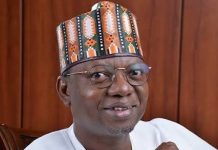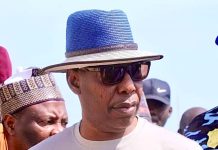THE thuggish criminality in the United Kingdom exempted, mass protests have been sweeping through many countries with people standing up for their right to decent lives. Nigeria, Kenya, Zimbabwe, Ghana, Uganda, Sudan, Eswatini, South Africa and, of course, Bangladesh.
They have been sad days in Bangladesh where bloody mass protests, mainly driven by students, under the banner of Students Against Discrimination, SAD, swept away Prime Minister Sheikh Hasina. The discrimination referred to are job quotas in public jobs in which 30 per cent was reserved for descendants of nationalists who fought in the 1971 War of Independence against Pakistan. Another 26 per cent was reserved for various groups. This had become quite contentious where in a population of 170 million, 32 million youths are unemployed.
But rather than address the issues raised, the government first blamed the opposition parties, the Islamist Jamaat-e-Islami and the Bangladesh Nationalist Party, BNP. Then it claimed the protesters were “rajakaar” or pro-Pakistani terrorists.
THE thuggish criminality in the United Kingdom exempted, mass protests have been sweeping through many countries with people standing up for their right to decent lives. Nigeria, Kenya, Zimbabwe, Ghana, Uganda, Sudan, Eswatini, South Africa and, of course, Bangladesh.
They have been sad days in Bangladesh where bloody mass protests, mainly driven by students, under the banner of Students Against Discrimination, SAD, swept away Prime Minister Sheikh Hasina. The discrimination referred to are job quotas in public jobs in which 30 per cent was reserved for descendants of nationalists who fought in the 1971 War of Independence against Pakistan. Another 26 per cent was reserved for various groups. This had become quite contentious where in a population of 170 million, 32 million youths are unemployed.
But rather than address the issues raised, the government first blamed the opposition parties, the Islamist Jamaat-e-Islami and the Bangladesh Nationalist Party, BNP. Then it claimed the protesters were “rajakaar” or pro-Pakistani terrorists.
sworn-in on May 29, 2023, he immediately announced the abolition of fuel subsidy. This greatly fuelled inflation in an oil-rich country with no single functional refinery. The reason for the fuel subsidy is simple: governments in the 25 years since the return to civil rule, have been incapable of refining the petroleum product needs of the 220 million populace. So the simple solution is to refine. However, the World Bank and the International Monetary Fund, IMF, are ever breathing down the necks of Nigerian governments not to refine, but increase fuel prices. But with the on-going protests, the lousy representatives of these shark institutions have been silent, making the Tinubu administration to carry the can alone. They wield power without responsibility and would be the first to flee the country were the situation to get out of hand. The second reason for the Nigerian hyper- inflation is the water-boarding of the Naira, again, as the IMF and World Bank have always insisted since 1981. This has always been devastating for an import-dependent country. It is these, coupled with the banditry and terrorism which have forced many farmers off their farms, that have led to the sorry state of the Nigerian nation. The solution is to address these concrete matters rather than dissipate energy looking for those carrying the Russian flag in the protests or detaining the alleged leaders of the protests. Some observation. The Nigerian Generals have been too intrusive in their loud media campaigns before and during the protests. Their involving soldiers from the very first second of the protests, is not in the interest of democracy and constitutional governance. As one of those who fought military misrule in Nigeria for decades, my antenna is up when I observe the lurking of a tiger.
The Kenyan protests were triggered by a Finance Bill powered by the same IMF and World Bank breathing down the necks of underdeveloped countries, as the country descended into chaos. The IMF tried to exonerate itself. Its Director of Communications, Julie Kozack, claimed all it had tried to do was to help Kenya “overcome the difficult economic challenges it faces and improve its economic prospects…” This came at the cost of dozens of lives and massive destruction. Even after President William Ruto withdrew the bill and reshuffled the cabinet, protesters are insisting he steps down. This is because Kenyans are tired of high food prices, rising poverty and corruption. Whatever the outcome, the Kenyan democratic project has suffered a serious setback and, healing is far off. Ruto had come from the streets and his greatest fear might be returning there.
The July 2024 protests in Uganda were against alleged massive corruption and a demand that Parliamentary Speaker Anita Among, steps down.
Ghana used the courts to block ‘The Gen-Z Demo’ planned for seven days from July 31, 2024. There had been massive protests in June against power outages. The protests in September and October, 2023 were mainly against hyper-inflation and mass unemployment. Zimbabwe detained and charged over 70 persons for allegedly gathering with the intent to promote violence. They were denied bail.
In Angola, the June 6, 2023 mass protests were against fuel price increases and the massive devaluation of the Kwanza. Over a dozen extra-judicial executions were traced to its security forces.
Perhaps, the most massive protests in South Africa this season took place on May 11, 2024 over the sack of 4,002 mine workers. On Wednesday, August 7, 2024 the street protests were restricted to the Western Cape Province.
Generally, the protests, especially in Africa, are against the implementation of the poverty-inducing policies of the IMF and World Bank, and democracies that do not yield dividends. They are a sort of plebiscite against political independence without economic independence. In many instances, the issue boils down to the fact that the people know what they want, but that is not what the governments want..













